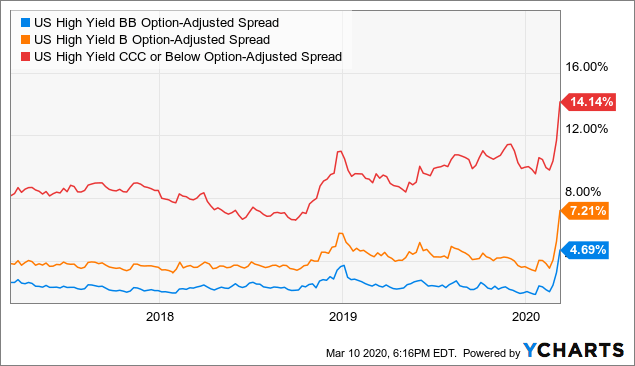
What are municipal tax exempt bonds? Tax-free muni bonds and GO bonds are two types of debt issued by local governments. The IRS defines a "political subdivision" as any entity authorized by a government to exercise sovereign powers such as taxation or eminent jurisdiction. The existing test for sovereign power is still valid, but the proposed rule adds a new criterion. The new regulations would require that the entity be government-controlled and serve a governmental purpose.
Municipal bonds exempted of tax
Some investors are more concerned about the tax implications of municipal bonds, but they can offer attractive income streams. These bonds are known for their low default rates, low refinance risks, and low correlation with major asset classes. They may not be right for everyone, however, as only a handful of insured municipal bond are currently available on the marketplace. Your investment goals and income level determine which benefits and what risks tax-free municipal bonds offer. You can discuss the potential tax advantages of municipal bonds with your tax advisor to help you make the best investment decision.

Tax-exempt municipal bonds
Investors often purchase tax-free municipal bond bonds to reduce taxes. Investors in higher tax brackets are often foolish to do this. They place less tax-favored fixed income investments in retirement accounts that are designed to defer taxes. This is a great alternative to the common tax-favored municipal bonds. But before you decide to invest, make sure you understand the details of tax-freemunis.
GO bonds that are exempted from taxes
Governments usually issue tax-free GO Municipal Bonds. These bonds carry a low default rate and generally yield more than taxable alternatives. The bonds are guaranteed by the government with all the faith and credit the issuing municipality. These bonds have interest that is due before any other obligations are fulfilled. These bonds, which are tax-free GO municipal bond, make a great investment. Numerous issuers have investor pages that are linked to their EMMA homepage.
Mun bonds exempt from tax
If you are looking for yields, tax-free municipal bond may not be the best option. They have lower yields that corporate bonds but offer the same after-tax yields as comparable taxable bonds. For high-tax citizens, who typically pay the highest taxes in the country, tax-free municipal bonds can be a benefit. A 6% municipal bond yield, for example, is more than 7.9% or "taxable-equivalent yield".

Mun bonds are tax-exempt
Municipal bond interest currently receives a poor tax treatment. The federal government loses revenue and many investors are excluded from the municipal bond marketplace. Further, the federal government receives only about $1 of reduced borrowing costs from municipal bond interest. This means that each dollar of tax revenue the federal government gives up, the state is able to save more than one dollar. Therefore, tax-exempt municipal debts are less profitable for households than those issued by corporations.
FAQ
What is the difference in a broker and financial advisor?
Brokers are specialists in the sale and purchase of stocks and other securities for individuals and companies. They handle all paperwork.
Financial advisors are experts on personal finances. They are experts in helping clients plan for retirement, prepare and meet financial goals.
Financial advisors may be employed by banks, insurance companies, or other institutions. They could also work for an independent fee-only professional.
You should take classes in marketing, finance, and accounting if you are interested in a career in financial services. You'll also need to know about the different types of investments available.
How do people lose money on the stock market?
The stock market does not allow you to make money by selling high or buying low. You can lose money buying high and selling low.
The stock market is for those who are willing to take chances. They may buy stocks at lower prices than they actually are and sell them at higher levels.
They are hoping to benefit from the market's downs and ups. They could lose their entire investment if they fail to be vigilant.
How does inflation affect stock markets?
Inflation can affect the stock market because investors have to pay more dollars each year for goods or services. As prices rise, stocks fall. You should buy shares whenever they are cheap.
What are the advantages to owning stocks?
Stocks are more volatile that bonds. When a company goes bankrupt, the value of its shares will fall dramatically.
If a company grows, the share price will go up.
Companies often issue new stock to raise capital. This allows investors to buy more shares in the company.
Companies can borrow money through debt finance. This allows them to get cheap credit that will allow them to grow faster.
When a company has a good product, then people tend to buy it. The stock will become more expensive as there is more demand.
The stock price should increase as long the company produces the products people want.
Statistics
- For instance, an individual or entity that owns 100,000 shares of a company with one million outstanding shares would have a 10% ownership stake. (investopedia.com)
- Even if you find talent for trading stocks, allocating more than 10% of your portfolio to an individual stock can expose your savings to too much volatility. (nerdwallet.com)
- Ratchet down that 10% if you don't yet have a healthy emergency fund and 10% to 15% of your income funneled into a retirement savings account. (nerdwallet.com)
- US resident who opens a new IBKR Pro individual or joint account receives a 0.25% rate reduction on margin loans. (nerdwallet.com)
External Links
How To
How can I invest into bonds?
An investment fund, also known as a bond, is required to be purchased. You will be paid back at regular intervals despite low interest rates. You can earn money over time with these interest rates.
There are many options for investing in bonds.
-
Directly purchase individual bonds
-
Buying shares of a bond fund.
-
Investing through a bank or broker.
-
Investing via a financial institution
-
Investing through a pension plan.
-
Invest directly through a stockbroker.
-
Investing in a mutual-fund.
-
Investing through a unit trust.
-
Investing through a life insurance policy.
-
Investing in a private capital fund
-
Investing via an index-linked fund
-
Investing via a hedge fund